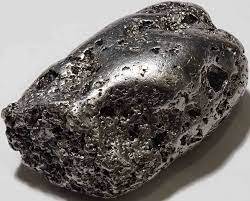By ETimes
Bindura Nickel Corporation (BNC) says it is focusing on increasing nickel production after reporting disappointing results for the third quarter and nine months ended December 31, 2022 due to machine breakdowns.
BNC, a member of the Kuvimba Mining House, owns assets for mining, processing, and exploration that have access to nickel resources throughout Zimbabwe. They include the BSR (previously Bindura Smelter and Refinery) complex, the Hunter’s Road Project, Damba-Silwane, Trojan Hill, and Kingstone Hill Projects.
A significant breakdown on Trojan Nickel Mine’s Sub-Vertical Rock Winder (SVR), which is used to hoist material (ore and waste) from the underground mining operations, had a detrimental effect on the company’s performance for the quarter.
BNC said the breakdown happened on October 10, 2022. This follows a seismic incident that caused the SVR’s center bearing to overheat due to misalignment.
“The misalignment, which was caused by a force majeure event, resulted in damage to the hoist’s currently operating bull gear, which led to the temporary stoppage of ore hoisting operations and, consequently, the production of nickel concentrates.
“The SVR was 2 realigned and recommissioned on 30 November 2022. This gear is expected to be replaced in the second quarter of FY2024,” the company said in a trading update.
For the quarter, ore mined was 49% lower than for the comparative period. Tonnes milled declined by 48% compared to Q3 FY2022.
Ore head grade, at 0.74%, was 53% lower than the same period in Q3 FY2022, owing to the lower proportion of high-grade massive ores in the tonnage mix.
Nickel in concentrate output went down by 80% during the period under review reflecting the lower ore tonnage milled.
The average London Metal Exchange (LME) nickel price of US$25,349 per tonne was 28% higher than the price of US$19,818 per tonne realized in the previous year’s comparative period.
But, the company’s nickel in concentrate sales for the period were 84% lower compared to Q3 FY2022.
The performance for the nine months was also on a downward trend.
“Tonnes ore mined decreased by 18% when compared to the corresponding period in the previous year as a result of the SVR breakdown and the delay in the delivery of the underground mining mobile equipment required for the transition from a high-grade, low-volume strategy to a high-volume, low-grade strategy,” it said.
“The delay in the delivery of the equipment was due to disruptions in the global supply chains, as a result of the protracted effects of the Covid-19 pandemic and the ongoing geo-political tensions related to the Russo-Ukraine conflict. To date, the company has taken delivery of one production rig in August 2022, one dump truck in September 2022 and four load, haul and dump machines (LHDs) in December 2022.”
Tonnes ore milled declined by 17% during the period under review. Also, the head grade declined by 28% from the 1.35% recorded in the previous year. This was attributed to the reduction in the footprint of the high-grade massives.
Nickel in concentrate production depreciated by 44%. The average LME nickel price per tonne increased by 36% compared to the previous year’s price of US$18,759 per tonne, reflecting the global increase in the demand for nickel.
Analysts expect the nickel price to average US$27,000 per tonne in the last quarter of FY2023 and to be above US$25,000 per tonne in the calendar year 2023.

The company said it will recover lost production.
“The last quarter of financial year 2023 will be focused on ramping up ore volumes, increasing Nickel production, stabilising mining operations, and returning the business to profitability, in the aftermath of the above-mentioned SVR breakdown and its recommissioning.
“Tonnages of ore hoisted will, however, be within the constraints imposed by the SVR bull gear,” BNC said in its outlook – Harare


